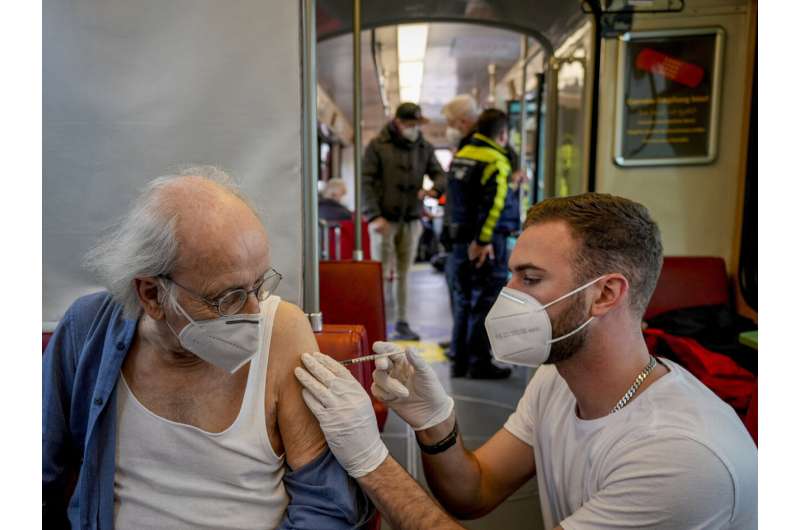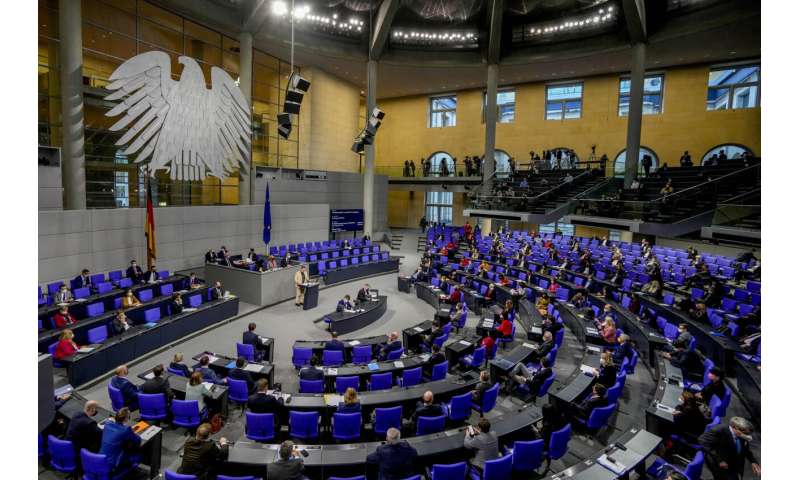
German lawmakers are debating Thursday whether to require all people aged 60 and over in the country to be vaccinated against the coronavirus—a compromise solution the government hopes will receive a parliamentary majority.
Chancellor Olaf Scholz and his health minister had originally called for a vaccine mandate to apply to all adults in Germany, but some government lawmakers and most of the opposition have balked at the idea.
After months of haggling, a cross-party group has proposed that only older people will be required to get the shot, though there will be compulsory counseling for all adults to help them weigh up the advantages and risks of vaccination against COVID-19.
Two opposition proposals are also being debated: the center-right Union bloc has proposed preparing a vaccine register to determine who has received a shot, but opposes a requirement to get one. The far-right Alternative for Germany party objects to any mandate and wants the existing vaccine requirement for health workers repealed.
Germany has managed the pandemic well compared to some of its European neighbors, with fewer deaths per capita than Italy, France, Britain or Sweden.
Social Democratic lawmaker Dagmar Schmidt, who presented the compromise bill targeting over-60s, noted that the number of infections has been going down lately.

Official figures show the confirmed coronavirus cases in Germany declined in recent weeks from a peak of about 300,000 daily to just over 200,000 in the past 24 hours. There were 328 COVID-related deaths, according to Germany’s disease control agency.
But Schmidt said it was necessary to prepare for a new rise in cases and a possible new variant later in the year.
“We will face the same challenge next fall that we did last fall,” she said. “The virus won’t simply disappear.”

